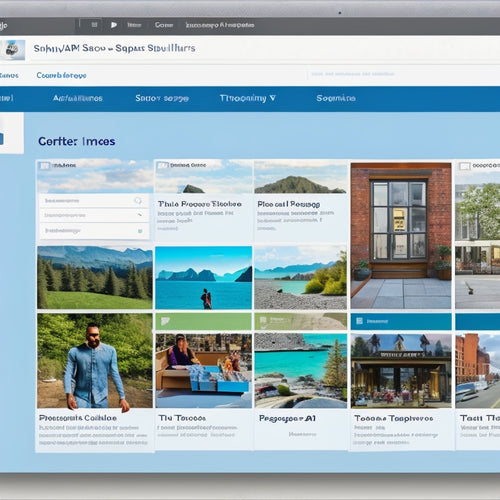
Discover Essential Merchant Account Options for Businesses
Share
When selecting a merchant account, businesses must consider various important options to ensure efficient and secure payment processing. Understanding the different types of accounts, including traditional, e-commerce, and high-risk, is pivotal in making an informed decision. Key features to prioritize include security, streamlined transactions, and valuable insights. A reliable provider with clear pricing, robust customer support, and industry-specific solutions is essential. With innovations like tokenization and biometric authentication, businesses can optimize their payment processing experience. By exploring these important options, businesses can access a tailored payment solution that meets their unique needs and industry requirements, and discover a world of possibilities.
Key Takeaways
• Identify the right merchant account type (traditional, e-commerce, or high-risk) based on your business needs and risk factors.
• Look for essential features like security, streamlined transactions, and valuable insights when selecting a merchant account.
• Choose a reliable provider with clear pricing, 24/7 customer support, and flexible contract terms to ensure smooth payment processing.
• Consider industry-specific account options tailored to unique business needs and regulatory requirements, such as high-risk or niche markets.
• Leverage payment solution innovations like tokenization, biometric authentication, and real-time analytics to enhance payment security and efficiency.
Understanding Merchant Account Types
In the complex landscape of payment processing, a thorough understanding of the various merchant account types is essential for businesses to navigate the nuances of online transactions and optimize their revenue streams.
A comparison analysis of traditional, e-commerce, and high-risk merchant accounts reveals distinct advantages and disadvantages. Traditional accounts are ideal for brick-and-mortar stores, while e-commerce accounts cater to online businesses. High-risk accounts, however, are limited by risk factors affecting payments.
Conducting a thorough risk assessment is pivotal in selecting the right merchant account type, as it directly impacts revenue streams and business operations. By understanding the different types of merchant accounts, businesses can make informed decisions and mitigate potential risks, ensuring a secure and efficient payment processing system.
Essential Features to Consider
When evaluating merchant account options, businesses should prioritize features that enhance security, streamline transactions, and provide valuable insights. This includes payment processing rates, transaction limits, and real-time reporting capabilities. Robust security measures are pivotal to protect sensitive customer data and prevent fraudulent transactions. Look for accounts with advanced encryption, tokenization, and compliance with industry standards like PCI-DSS.
Additionally, reliable customer support is vital for resolving technical issues and addressing customer concerns. Opt for providers offering 24/7 support through multiple channels, including phone, email, and live chat. By considering these essential features, businesses can guarantee a seamless and secure payment processing experience that fosters trust and loyalty with their customers.
Choosing the Right Provider
Three key factors when selecting a merchant services provider are the type of business, the level of security required, and the range of services offered. A reliable provider ensures minimized downtime and efficient transaction processing. Be cautious of hidden fees that can erode your profit margins.
| Provider Considerations | Key Features |
| Provider reliability | Uptime guarantees, redundant systems |
| Hidden fees | Clear pricing, no unexpected charges |
| Customer support | 24/7 assistance, multiple communication channels |
| Contract terms | Flexible terms, no extended lock-ins |
| Additional services | Integration with accounting software, fraud detection |
When evaluating providers, assess their customer support, contract terms, and additional services offered. A provider that meets your business needs and prioritizes security will help you minimize risks and maximize profits.
Industry-Specific Account Options
Across various industries, merchant account options are tailored to address unique business needs and regulatory requirements. High-risk businesses, for instance, require specialized accounts with higher monthly rates and transaction fees to mitigate potential losses.
Industry-specific accounts cater to niche markets, providing tailored solutions that meet specific demands. In the retail sector, traditional merchant accounts are ideal for brick-and-mortar stores, while e-commerce merchant accounts are better suited for online businesses.
Similarly, high-risk merchant accounts are designed for industries with higher risk factors, such as adult entertainment or online pharmacies. By choosing an industry-specific merchant account, businesses can guarantee compliance with regulatory requirements and optimize payment processing tailored to their unique needs.
This ensures a secure and efficient payment system, minimizing the risk of fraud and reputational damage.
Payment Solution Innovations
As the payments landscape continues to evolve, innovative payment solution providers are developing cutting-edge technologies to streamline transactions, enhance security, and improve the overall customer experience. These advancements aim to minimize payment security risks and optimize transaction processing efficiency.
Some key innovations include:
-
Tokenization: securely storing sensitive payment information, reducing the risk of data breaches.
-
Biometric authentication: enhancing payment security through advanced verification methods, such as facial recognition and fingerprint scanning.
-
Real-time transaction analytics: providing businesses with instant insights into customer behavior and transaction patterns, enabling data-driven decisions.
Frequently Asked Questions
Can I Have Multiple Merchant Accounts for Different Business Ventures?
Yes, having multiple merchant accounts for different business ventures is possible, but consider account consolidation for streamlined account management, facilitating business growth and financial organization, while ensuring secure and efficient payment processing.
How Do I Protect My Merchant Account From Fraudulent Activities?
"A fortress of fraud prevention, safeguard your merchant account with robust security measures, such as real-time monitoring systems, to shield against chargebacks and malicious activities, ensuring a secure payment ecosystem."
What Happens if My Merchant Account Is Terminated Unexpectedly?
'In the event of unexpected merchant account termination, understanding the appeal process and exploring alternative solutions are crucial to minimize disruption. Promptly address the issue with your provider, and consider backup payment processing options to maintain business continuity.'
Are There Any Merchant Account Options for Non-Profit Organizations?
Non-profit organizations can explore merchant account options tailored to their unique fundraising methods and payment processing needs, ensuring secure and efficient donations, with specialized providers offering reduced fees and customized solutions.
Can I Use a Personal Bank Account for Business Transactions Instead?
"Imagine a tangled web of financial complexities - using a personal bank account for business transactions can lead to blurred lines, compromising business benefits, and exposing your venture to legal implications, making it a risky and ill-advised choice."
Related Posts
-

What Makes Digital Products a Game-Changer for Sellers
You're about to open the full potential of your business with digital products, which offer unparalleled flexibility,...
-

How Do I Add a Product Feed to Shopify
The integration of product feeds into Shopify offers numerous advantages for merchants seeking to enhance their onli...
-

How Do I Set up A Tracking Page on Shopify
This article aims to provide a comprehensive guide on setting up a tracking page on the Shopify platform. It explore...


